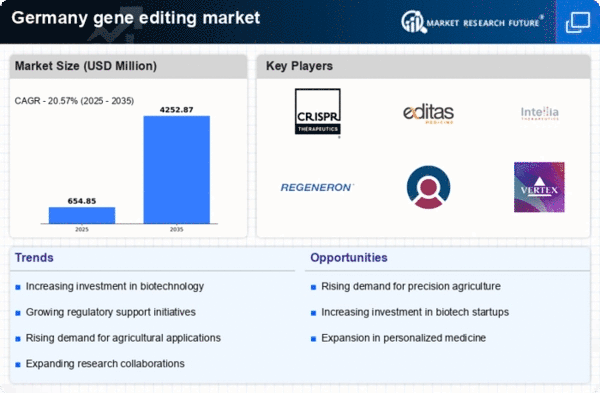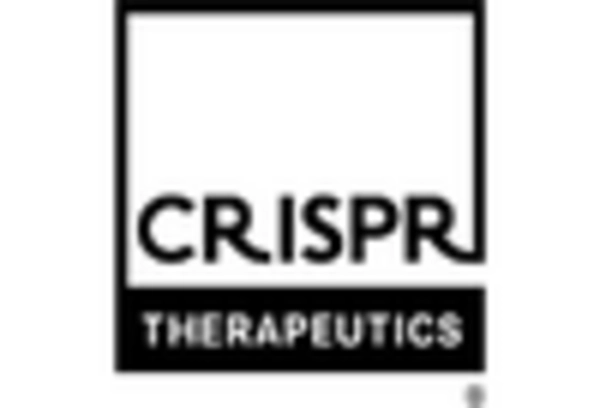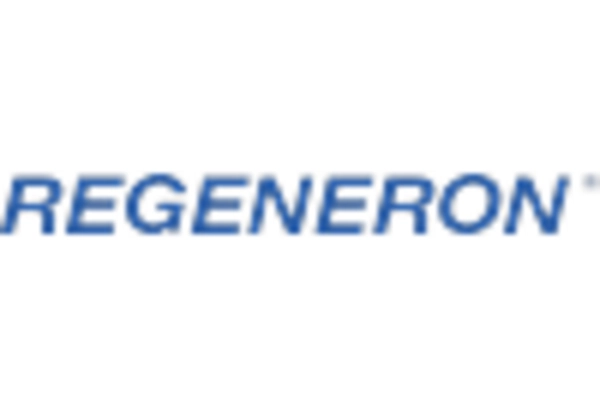Regulatory Support for Gene Editing
Regulatory frameworks in Germany are evolving to support the growth of the gene editing market. The government is actively working to create guidelines that facilitate research while ensuring safety and ethical considerations are met. In 2025, the German Federal Ministry of Education and Research announced new initiatives aimed at streamlining the approval process for gene editing projects. This regulatory support is likely to encourage more research and development activities within the gene editing market, fostering innovation and attracting international collaborations. As regulations become more favorable, the market is expected to see increased participation from various stakeholders.
Rising Demand for Precision Medicine
The gene editing market in Germany is significantly influenced by the rising demand for precision medicine. As healthcare shifts towards personalized treatment approaches, gene editing technologies are becoming essential for developing targeted therapies. In 2025, the precision medicine market in Germany is estimated to be valued at €3 billion, with gene editing playing a crucial role in this growth. The ability to tailor treatments based on individual genetic profiles is likely to drive the adoption of gene editing solutions in clinical settings. Consequently, the gene editing market is expected to expand as healthcare providers increasingly integrate these technologies into their practices.
Increasing Investment in Biotechnology
Germany's gene editing market is witnessing a surge in investment from both public and private sectors. The German government has allocated substantial funding to biotechnology research, with an emphasis on gene editing technologies. In 2025, the total investment in biotechnology reached approximately €1.5 billion, with a significant portion directed towards gene editing initiatives. This influx of capital is expected to accelerate the development of innovative therapies and agricultural solutions, thereby enhancing the competitiveness of the gene editing market. Additionally, venture capital firms are increasingly interested in funding startups focused on gene editing, further stimulating market growth.
Public and Private Sector Collaboration
Collaboration between public institutions and private companies is a driving force in the gene editing market in Germany. Partnerships between universities, research centers, and biotech firms are fostering innovation and accelerating the development of gene editing technologies. In 2025, several collaborative projects were launched, focusing on agricultural applications and therapeutic developments. These partnerships not only enhance research capabilities but also facilitate knowledge transfer and resource sharing. As a result, the gene editing market is likely to benefit from a more robust ecosystem, leading to faster advancements and commercialization of gene editing solutions.
Technological Advancements in Gene Editing
The gene editing market in Germany is experiencing rapid technological advancements, particularly in CRISPR and other genome editing techniques. These innovations enhance precision and efficiency, making gene editing more accessible for various applications, including agriculture and medicine. The market is projected to grow at a CAGR of approximately 15% from 2025 to 2030, driven by these advancements. Furthermore, the integration of artificial intelligence in gene editing processes is likely to streamline research and development, reducing costs and timeframes. As a result, the gene editing market is poised for significant growth, attracting investments and fostering collaborations among research institutions and biotech companies.
















